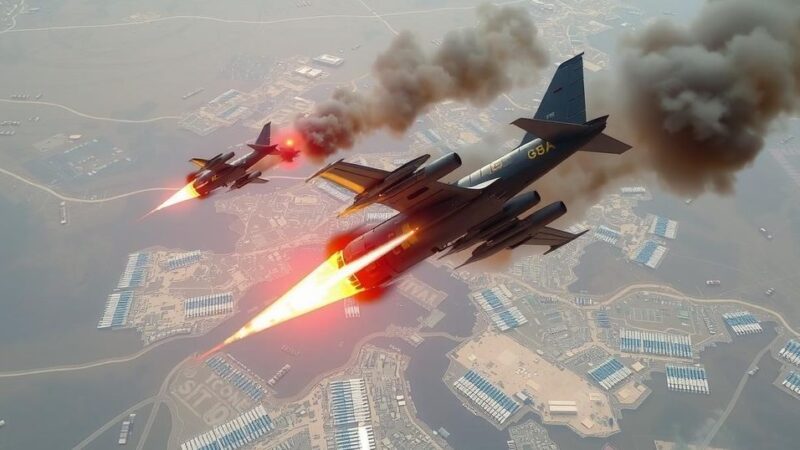U.S. Secretary of State Antony Blinken urged Iraq to confront Iranian-backed militias following recent changes in Syria that have reduced Tehran’s influence. He met with Iraqi Prime Minister Mohammed Shia al-Sudani to discuss strengthening Iraq’s sovereignty and addressing security concerns, particularly regarding Iranian arms transfers and the Islamic State’s resurgence. Iraq’s historical ties with Iran complicate the implementation of U.S. requests for action against militias allied with Tehran.
United States Secretary of State Antony Blinken is advocating for a stronger Iraqi stance against Iranian-backed militias, particularly following recent geopolitical changes in Syria that have diminished Iran’s influence. During a meeting with Iraqi Prime Minister Mohammed Shia al-Sudani in Baghdad, Blinken emphasized that the current circumstances present an opportunity for Iraq to reduce Tehran’s power, urging action against these militias which have historically targeted American forces.
While Blinken’s public comments maintained a measured tone regarding Iraq’s sovereignty, he underscored the need for Iraq to bolster its security and stability without directly referencing Iran. A U.S. official conveyed that Blinken called on Sudani to take concrete actions against Shiite armed groups supported by Tehran and to curb the transfer of Iranian arms across Iraq into Syria.
Historically, Iranian influence in Iraq intensified post-2003 following the removal of Saddam Hussein. This entanglement further heightened with the Syrian government’s reliance on Iranian support, particularly during the recent conflicts involving Israel and its own challenges with Russia. The U.S. continues to monitor the situation closely, especially concerning the resurgence of the Islamic State (IS) group in Iraq, emphasizing the importance of a collaborative effort to thwart its potential comeback.
As Iraq navigates its complex relationship with Iran, Blinken’s discussions signify a pivotal moment in U.S.-Iraq relations, particularly in reducing foreign influence in the region. Iraq’s government, which maintains significant links with Iran, faces pressures to balance its ties with Washington and local dynamics, particularly as the Biden administration seeks to facilitate a reduction of U.S. troop presence while still addressing Iranian threats.
The geopolitical landscape in the Middle East has shifted significantly in recent years, particularly following the downfall of Bashar al-Assad in Syria. This change has provided the U.S. with a window to address Iranian influence in Iraq, which has been considerable since the U.S.-led invasion in 2003. Iranian-backed militias have historically posed a significant challenge to U.S. forces in Iraq. The broader implications of these dynamics involve regional stability, counter-terrorism efforts, and Iran’s interactions with its allied governments and militant groups. The Assad regime’s ties to Iran and Hezbollah further complicate these relationships, as do the ongoing military engagements in Ukraine that are affecting Russia’s ability to support Iran and its allies effectively.
In summary, Secretary of State Antony Blinken is leveraging recent developments in Syria to urge Iraq to take decisive measures against Iranian-backed militias. His discussions with Iraqi Prime Minister al-Sudani reflect a strategic U.S. interest in enhancing Iraq’s sovereignty while mitigating foreign influence from Tehran. The ongoing complexity of Iraqi politics, particularly as they relate to regional security and bilateral relations with both Iran and the United States, will be critical for Iraq’s future stability.
Original Source: www.france24.com







